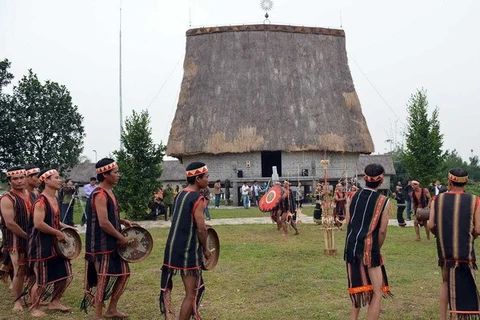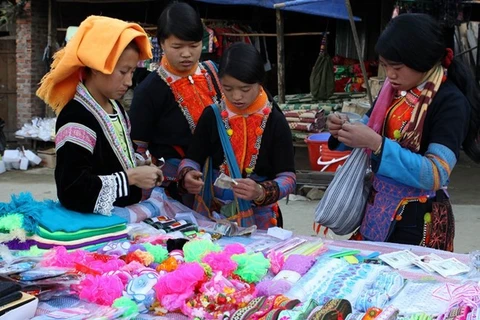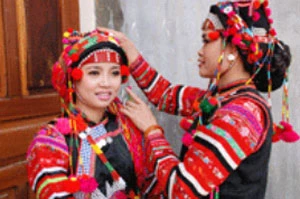More than 50 village patriarchs and artisans of the 16 smallest ethnic groups in Vietnam gathered in Hanoi on August 6 to speak on ways to uphold their traditional cultural identities.
Deputy Minister of Culture, Sports and Tourism Huynh Vinh Ai said Vietnam is home to 16 ethnic groups with populations below 10,000, namely Si La, Pu Peo, Ro Mam, Brau, O Du, Pa Then, Co Lao, Lo Lo, Mang, Lu, Cong, Bo Y, Chut, Ngai, La Ha and La Hu. They mainly reside in the northern mountainous provinces of Son La, Dien Bien, Lai Chau, Ha Giang, Lao Cai and Cao Bang; central Nghe An province; and the Central Highlands province of Kon Tum.
Particularly, Si La, Pu Peo, Ro Mam, Brau and O Du have populations under 1,000, he noted.
He underlined that their diverse traditional cultural values have not been preserved appropriately and are facing risks of disintegration.
At the meeting, participants pointed out that they traditionally live in mountainous and rural areas and near other ethnic groups, leading to the integration of cultural values. The development of modern cultural and entertainment forms has also dwarfed traditional identities.
In many areas, the elderly are no longer interested in teaching their descendants traditional values while ethnics themselves are not aware of protecting and promoting their groups’ identities, they said.
They called upon authorities and sectors to pay more attention to preserving the ethnic groups’ traditional cultural values, adding that concrete measures are needed to improve awareness of the entire community instead of focusing on protecting some festivals or customs.
The representatives also stressed that traditional identities should be preserved through practice in the daily life of each community.
Authorities and sectors should encourage the elderly to impart their knowledge to the younger generation and support the youth in speaking their mother tongue, wearing traditional attire and performing traditional arts.-VNA























